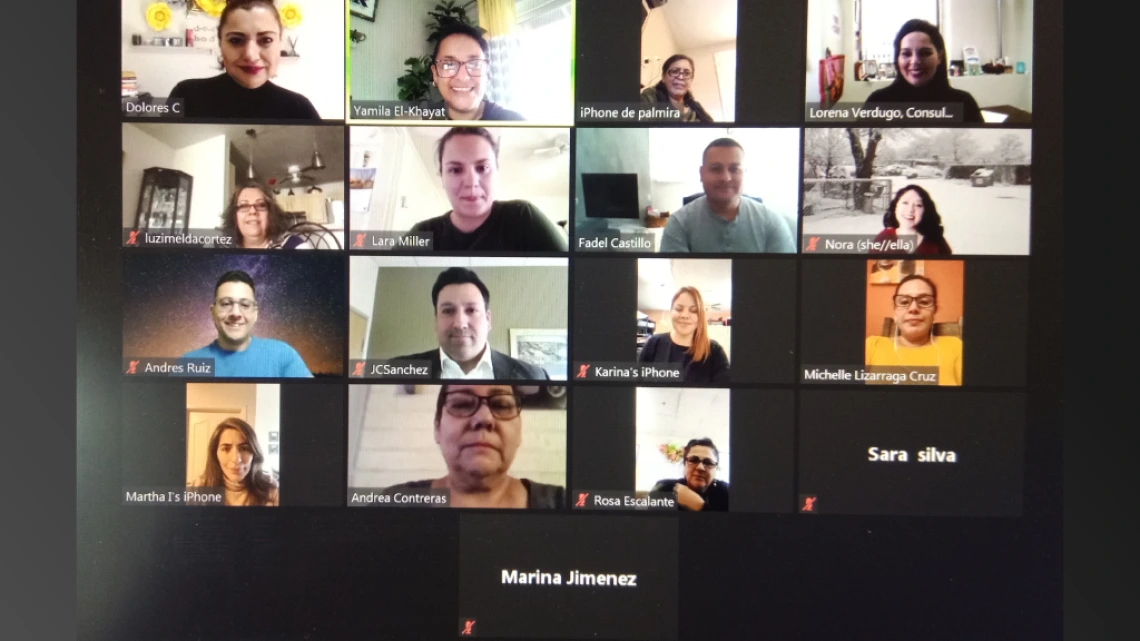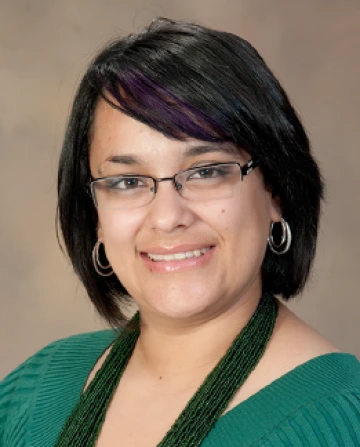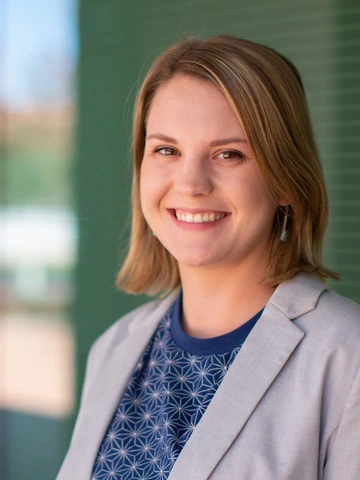Closing COVID-19 information gaps for underrepresented communities

COVID-19 information workshops bring librarians, medical students, and community health workers together.
For many years, the University of Arizona Health Sciences Library (HSL) has connected with underrepresented communities through outreach programs to help them navigate and understand health-related information. Improving information literacy is the key to closing the gap between the community members and the medical professionals who serve them.

Thanks to a $50,000 grant from the Network of the National Library of Medicine Pacific Southwest Region, the Health Sciences Library is continuing this work and focusing on COVID-19.
According to HSL's Outreach Services Librarian Yamila El-Khayat, the principal investigator and program manager for the project, "promotores"─the Spanish term for community health workers─play a key role in these efforts. Promotores are health information consumers from the communities in which they work.
“Promotores not only empower people when it comes to dealing with their own health concerns,” explains El-Khayat. “They can translate medical information in a way that is culturally-sensitive and meaningful within their community.”
The project includes a multi-tiered approach for information literacy instruction and training. The participants recruited for the training and instruction sessions are members of the Latinx and Native American communities. A team of librarians will train second-year medical students at the University of Arizona College of Medicine - Phoenix to identify and evaluate reliable health information resources. The medical students will then conduct a series of information workshops for the promotores. The instruction series from February 10 to March 5 is facilitated in partnership with the Ventanilla de Salud program from the Mexican Consulate’s Tucson office.

Analytics & Assessment Librarian Lara Miller is involved in the project and participates in each session to address the evaluation component.
The training sessions are conducted on the Ventanilla de Salud Tucson Facebook Live platform and include evaluating resources for source reliability and cultural relevance. The trainers will use health information resources and materials from the National Library Medicine, the National Institutes of Health (NIH), the Center for Disease Control and Prevention, and other government agencies that provide COVID-19 information.
“We’re bringing medical students, the promotores, and project participants together to learn critical skills to work with their respective clients and communities," said El-Khayat.
As the teams work with Native communities, the trainers will use broadcast radio and infographic handouts to disseminate information. They will also identify and collaborate with health network contacts to build upon existing Community Engagement Alliance (CEAL) efforts. CEAL is an NIH initiative to deliver accurate information and education to communities of color on the importance of inclusion in clinical research to overcome COVID-19 and address health disparities.
“Our discussions around the COVID-19 vaccine were very engaging,” said El-Khayat. More participants attended the first session in early February than expected, and they are looking forward to more sessions. After the training is completed, the promotores will share the information with their communities.
“Everyone was vocal about myths and what they were hearing in the community about the vaccine. Clarifying many of their doubts was essential to ensure that underrepresented communities are making informed decisions about their health.”
